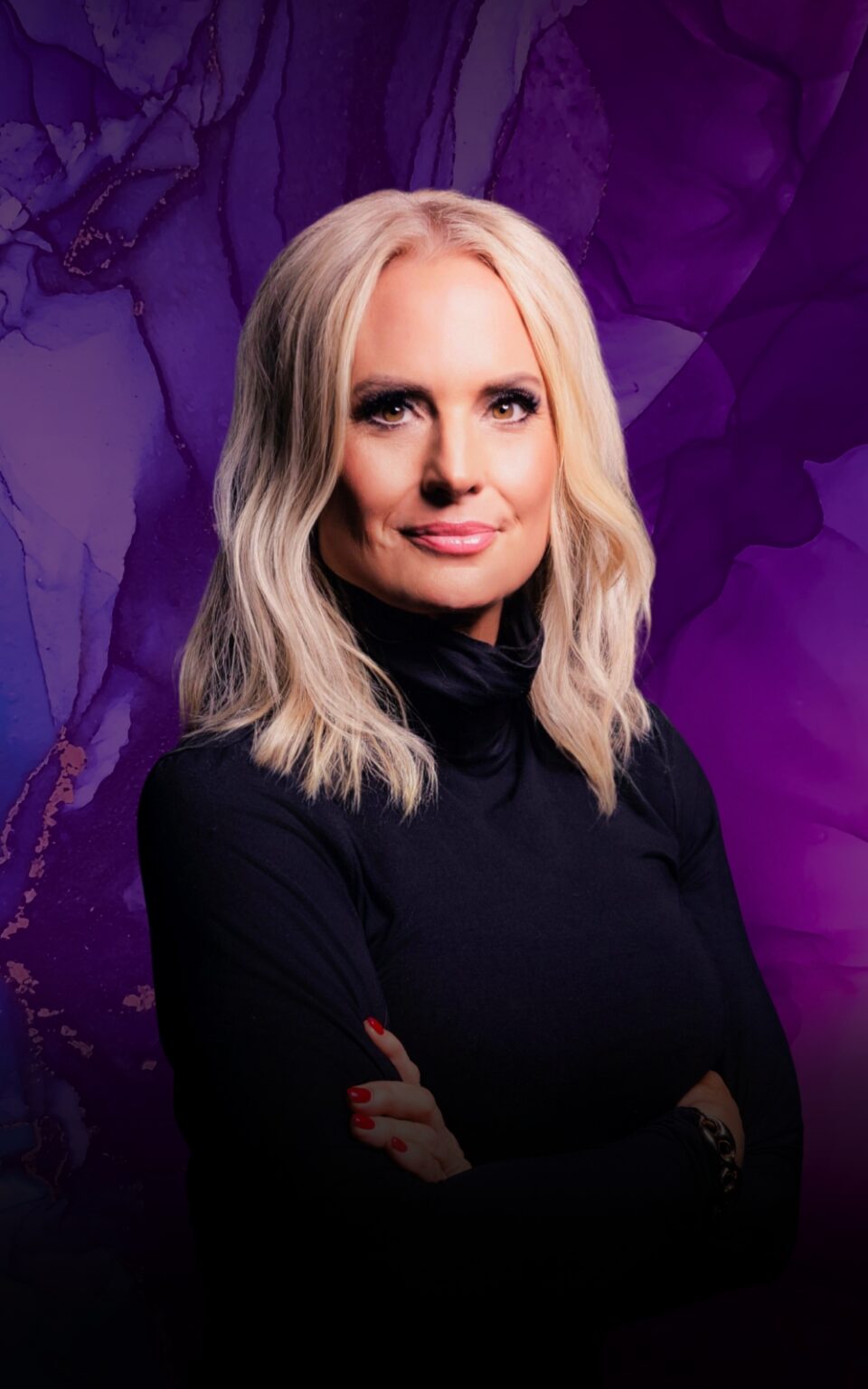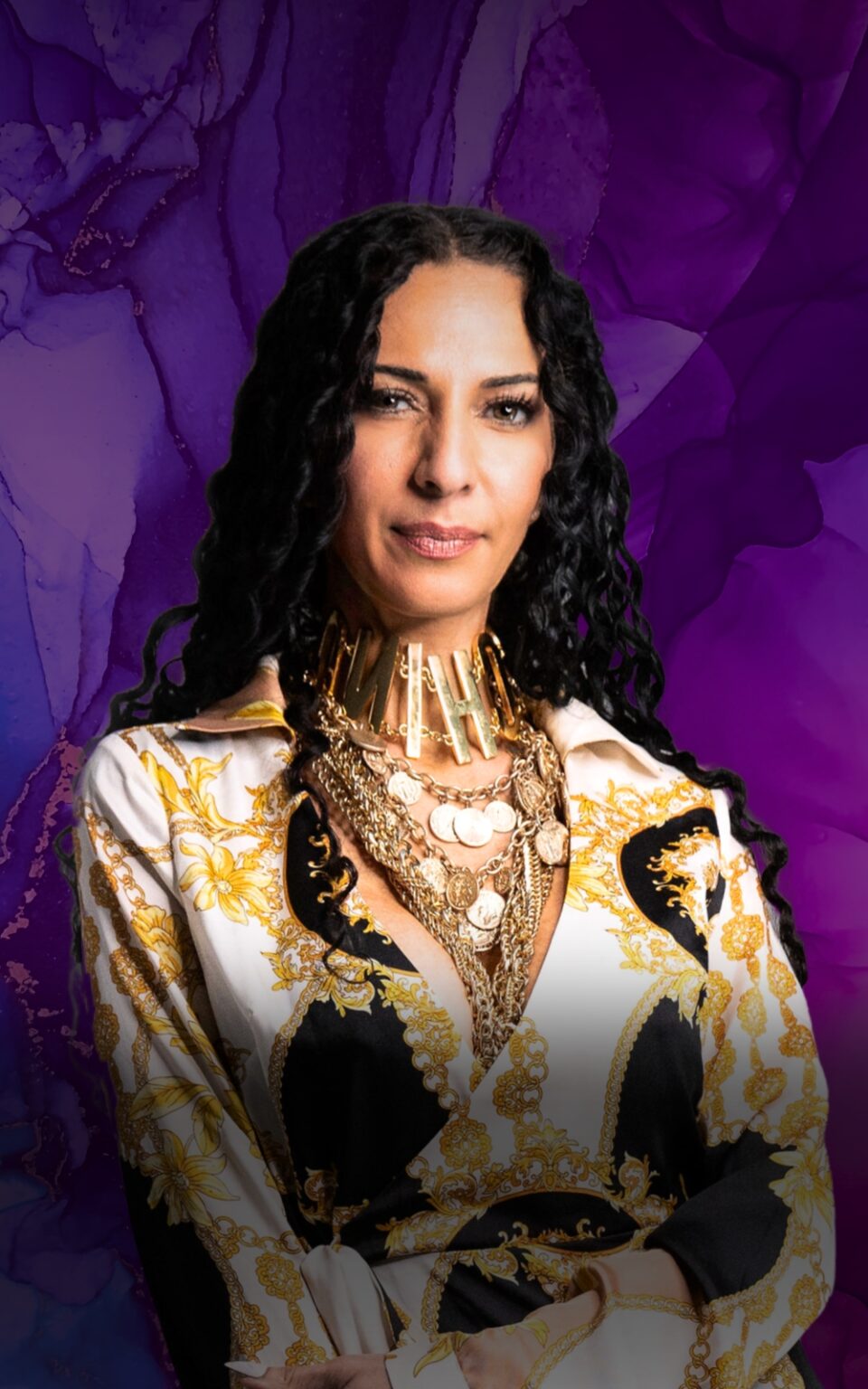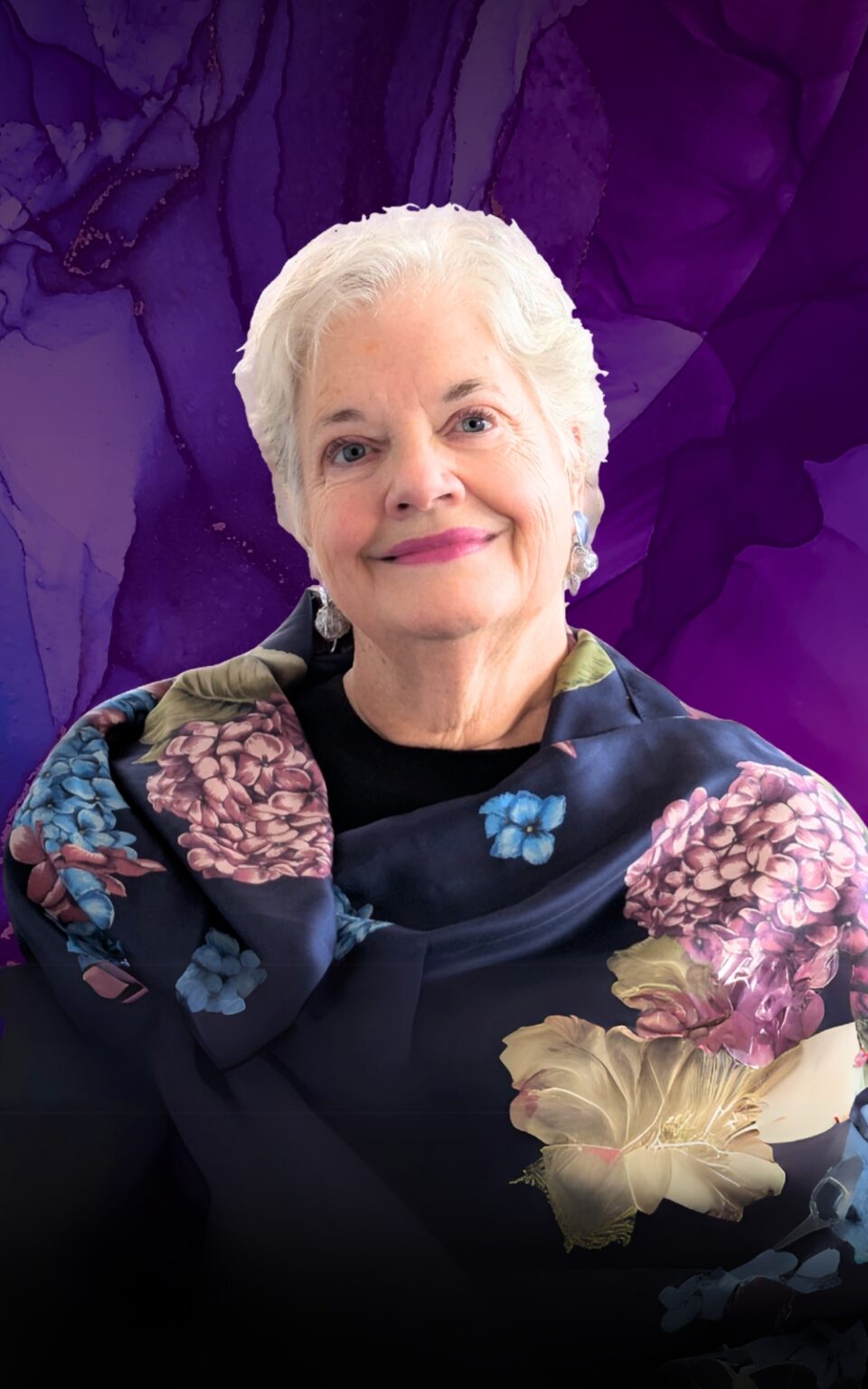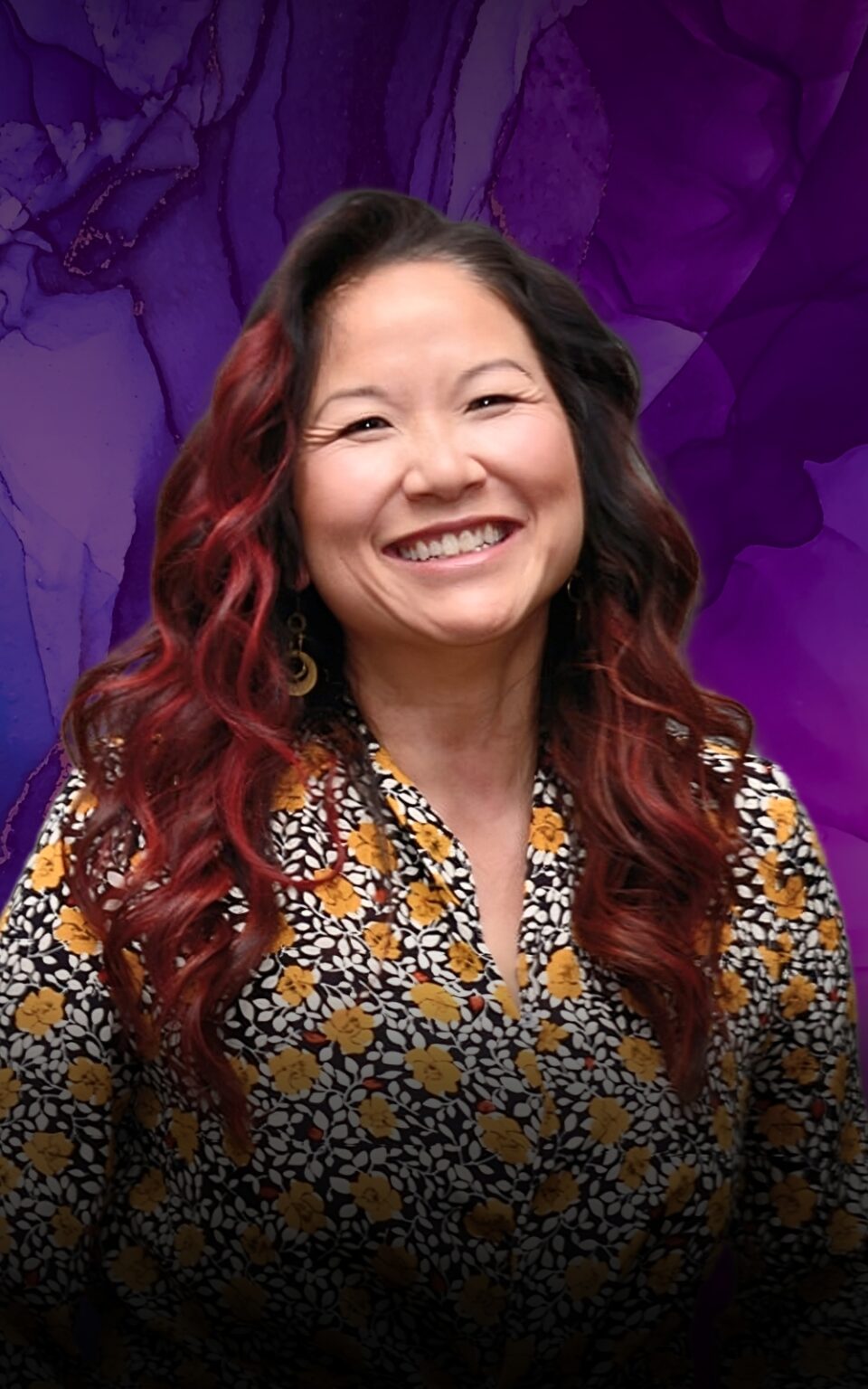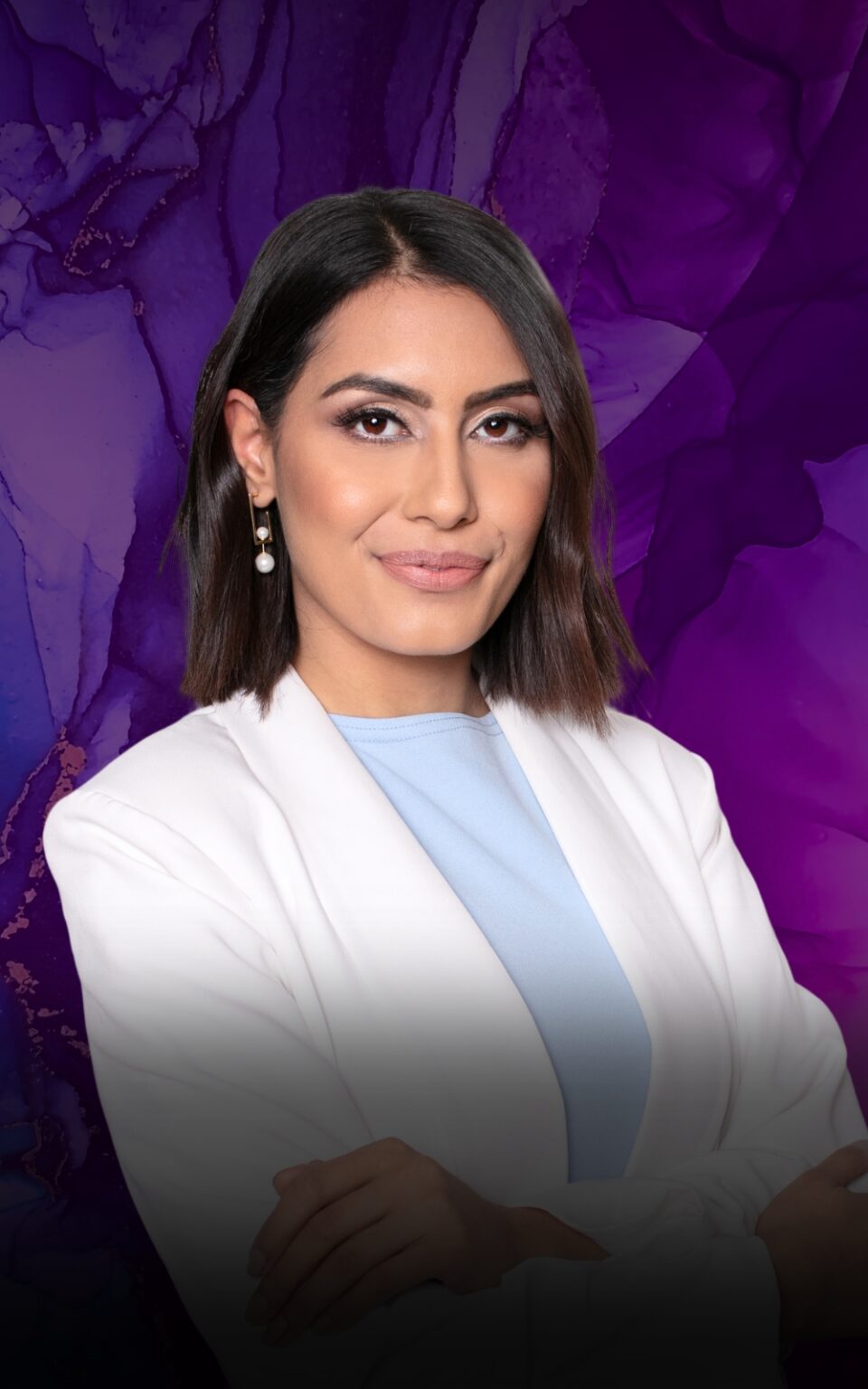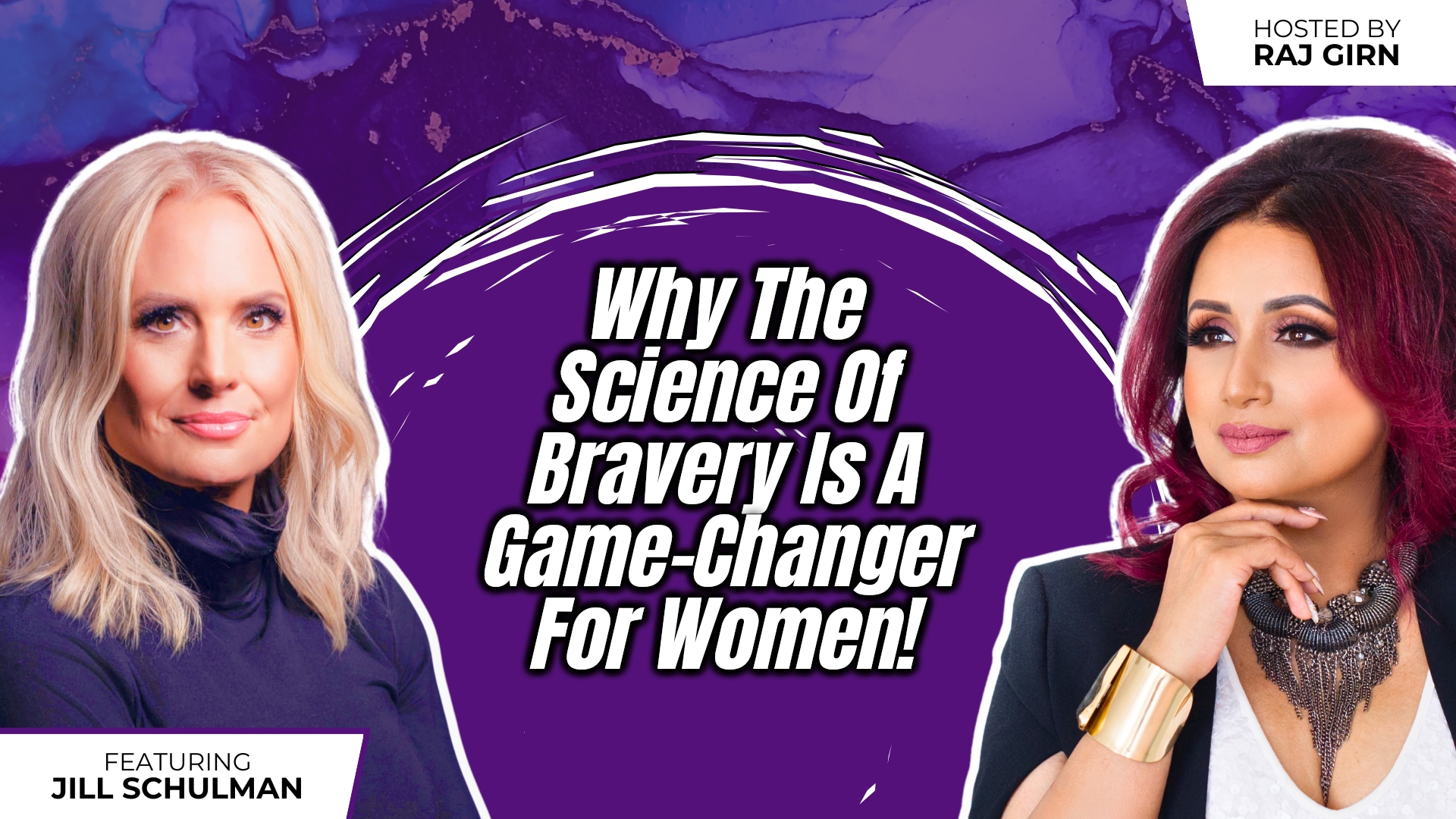
Raj Girn: Hi everyone! Welcome to another exciting episode of the ‘Transform Your Confidence’ podcast, a place where we bring you into our inner circle of recommended leaders, experts, and thought leaders to garner their insights of knowledge and techniques that are working today with the goal of levelling up your repertoire of expertise so that you’re always set up to win.
In today’s show, we will be focusing on Mindset & Clarity with the theme of “Why The Science Of Bravery Is A Game Changer For Women.”
TO WATCH:
TO LISTEN:
TO READ, SCROLL DOWN:
Raj Girn: Before we being, I’d like to remind you to subscribe to our YouTube channel at The Open Chest Confidence Academy to view all video versions of the show and also search Transform Your Confidence wherever you receive your audio podcasts, so you never miss an episode, when we launch them every 3rd Thursday of the month. Please remember that and hit the notification button just in case you don’t remember.
In today’s show, we will be focusing on Mindset & Clarity with the theme of “Why The Science Of Bravery Is A Game Changer For Women.”
My guest today is Jill Schulman, who is a US Marine Corps veteran, a keynote speaker, an expert in the science of bravery with a master’s in applied positive psychology, science of happiness and wellbeing – I love that.
She combines evidence-based research with real world experience to help individuals and teams embrace courage, push limits and achieve greater performance and wellbeing. Her new book, ‘The Science of Bravery’, which has inspired the theme of this episode’s discussion, provides practical tools for developing a courageous mindset, taking bold actions, and building brave relationships.
Jill, welcome to the show. I have been waiting in anticipation to have this incredible conversation with you. Thank you for agreeing to be on.
Jill Schulman: Well, thank you for having me. Like you had me at ‘Confidence Academy’ specifically because your audience is women. So, I’m like women trying to build more confidence to be able to achieve their goals. Like this, you guys are my people. I’m so happy to be here.
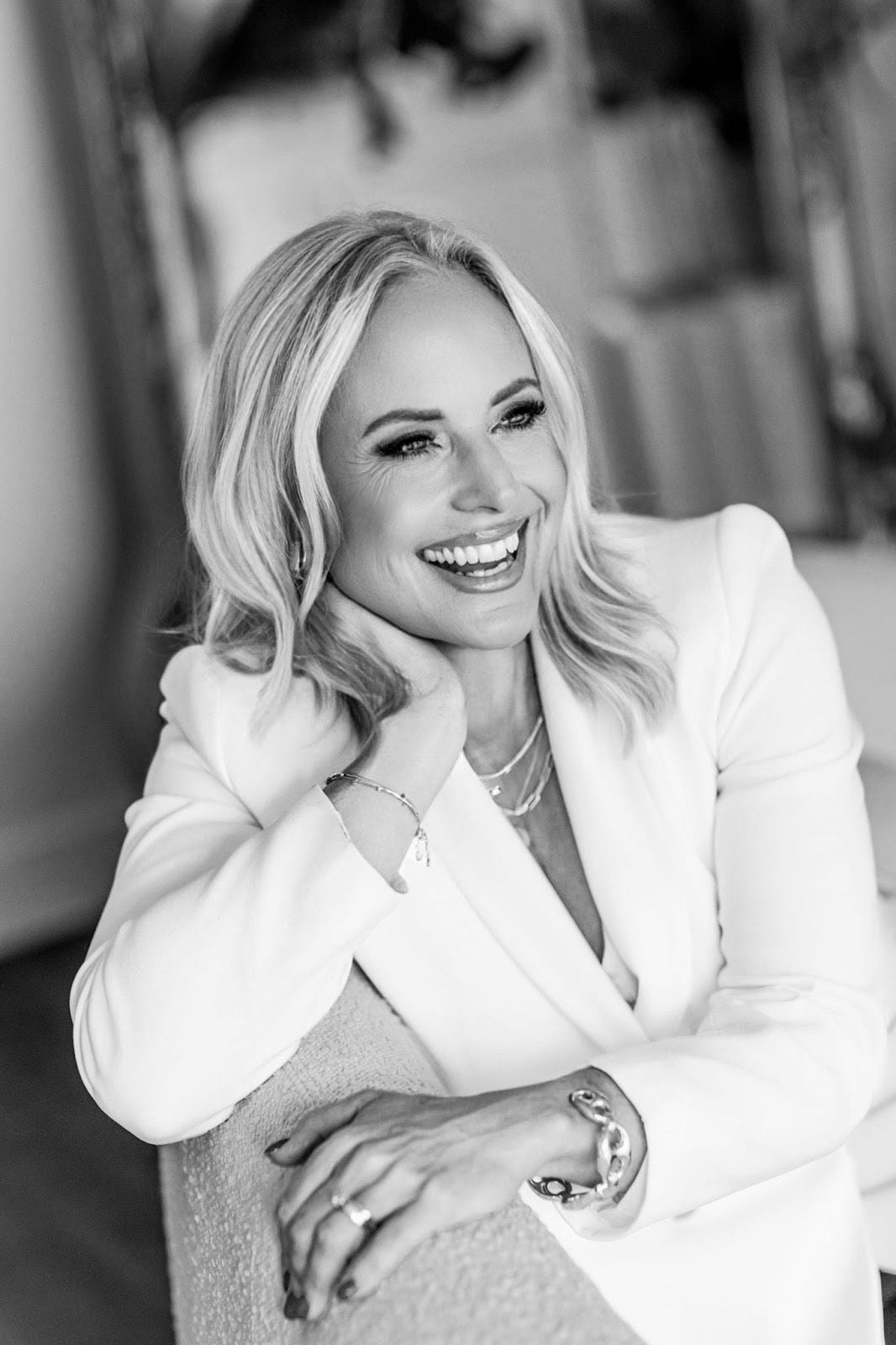
Oh, my God. So, I am dying to dive right in. So, I want to ask you this, Jill. Before we begin, can you share some insights and some highlights on your career prior to writing the science of bravery? Let’s catch everyone up.
Let me give you just kind of a quick overview of my career path. So, I started my journey—my professional journey—as a United States Marine. So, I decided to join the service, I actually had an opportunity where I had a full scholarship, a full ride in the Marine Corps, so I went to the University of San Diego. I’ve got lots of stories on – that was a really hard journey, but I overcame it and I think it’s what taught me some of the essentials of bravery.
Then I served our country for five years as one of the first ever combat engineer officers, which is where we actually blow things up and build stuff in the Marine Corps, which was an interesting specialty. Great transferable skills when you get out right there.
And then I sold drugs, the legal kind in the pharmaceutical industry. So, I, I went into the pharmaceutical industry never with an intent to do it, but when I was getting out, they had all these recruiters that were trying to place you. And I was, I really felt like I’m a captain of Marines, I’m above sales, what is this pharmaceutical space? But they said, just interview to practice your interviewing skills. So, I did.
The second manager that I interviewed with was a Marine as well. He was a former Marine or an officer. And I took a leap of faith and went down that path, and I fell in love with science. I love science, I love the industry, so I did that for 15 years. I was brave and then started my own company 10 years ago.
Wow.
So now I serve my clients by really developing leadership skills and culture that drive results. And then the reason I’m studying bravery now is I stumbled upon this field of positive psychology. Like as you said in your intro, it’s the scientific study of elevating happiness and wellbeing. I’m like, this is the most interesting thing I’ve ever heard of. And there’s an application to. Happiness and well-being in the workplace and how it drive results. So, I was all in.
So, I went back and I studied this at Penn and I came out of it and you went to the, doing a deep dive at the end of your master’s program at Clemson and I became the most interested in the challenges that we all face. Like it’s not our talent, it’s our abilities. It’s not a dream. Sometimes what holds us back from achieving what we want is that lack of confidence or that lack of bravery because fear sometimes controls us and it keeps us small.
So, I decided to do my research on bravery because I feel like it’s so important, especially now. I mean, I think a lot of people confuse comfort with happiness and it’s simply not true. Yeah, so that’s my story and that’s why I’m on this mission to be a truth-teller and to share that the path to happiness is not through comfort and avoiding challenges. It’s to be brave and be confident and to move forward in the presence of fear and you will have the most amazing, fulfilled life if you do that.
The path to happiness is not through comfort and avoiding challenges. It’s to be brave and be confident and to move forward in the presence of fear.
~ Jill Schulman
Oh, my gosh, sister, you are talking my language. You have no idea, I’m so excited and exhilarated already. And you are the most perfect person to have this conversation with. So, I want to start at ground zero for people who haven’t, maybe, really thought about bravery outside of what we know and what we’re taught. So, I want to ask you this, since you’ve deep dived it, what is bravery?
Well, let’s define it. And it’s not what most people think, because when you think of bravery, you probably have an image in your mind of, I mean, what comes to mind? If you view someone being brave, what do you see in your mind? Usually someone goes to war. Exactly, a soldier. Someone going to a war, or maybe a firefighter running into a burning building. So, I mean those are examples of extreme bravery. So, I don’t want to take away from that. But bravery is so much more than that.
So, bravery is defined, this is according to Dr. Cynthia Puri, a leading researcher in bravery from Clemson University, defines bravery as voluntary action taken in the presence of fear towards a worthy goal. So, let’s break that down. So voluntary action, we choose, we have agency, we can choose to act in the present of fear toward a worthwhile goal, an intrinsic goal.
The one thing I want to make sure everyone understands is sometimes people think, oh, brave people are fearless. If you don’t have a fear, it’s actually not being brave. So, this is learning how to move forward even though you’re scared. So being scared and doing it anyway. So that’s what bravery is. And it’s so much bigger than just those little examples of soldiers going into battle. I mean, those are bravery, but we all have fears. You know, and so that’s physical bravery, right?
Most of them fear that we lack social bravery—the fear of embarrassment, fear of failure, fear of rejection, right? To all my women out there, that’s our fear, and that’s what holds us back. So, bravery is a skill that we all need to care about. Yeah, that’s what bravery is.
Absolutely. What a poignant statement. I feel like I need to put that up, you know, like in quotes on my mirror every morning and just look at it to remind myself that it’s the end goal, that is the important one in this particular case. It’s not the journey of the fear, but more journeying through the fear to get to the end result. Your comment on that?
Yes. The fear is what shackles us. It keeps us small. It prevents us from sometimes even trying to accomplish the goal. You know, it prevents us from dreaming. So yes, when you develop the skill of bravery, you’re able to accomplish your goals. But do you want to know what’s even better about it? This is the most exciting part of bravery, and that’s the reason why I named my book The Bravery Effect. You will accomplish more than you’ve ever accomplished. You will be more successful in your career. But that’s not the best part of bravery.
The best part of bravery is when you learn to conquer your fears and accomplish more—it’s who you become on the journey. You become more confident. You look into the mirror with pride, and that just builds. Like, you climb the first mountain and you’re like, wow, and now you feel unstoppable. The best part of bravery is how it elevates your self-efficacy, your self-belief, your pride in yourself, your self-love. That is the beauty of bravery.
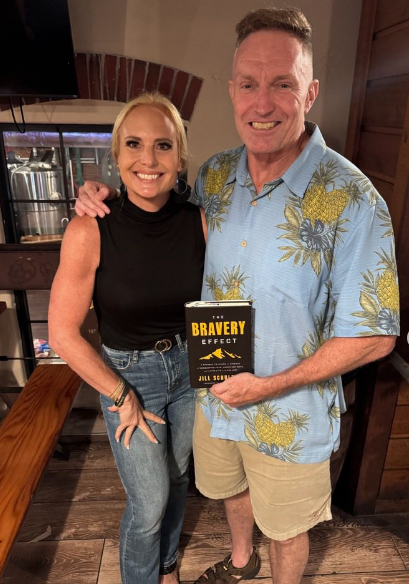
Oh my gosh, you’re like, I couldn’t have said it better myself. This is such an interesting conversation. I want to ask you, what does it look like when a woman stands up for herself, even when she’s afraid?
It looks like, maybe in a meeting, a woman is attending a meeting, and she has an idea that she thinks would be a great idea to share. But there are only a couple of women in the room; it’s mainly men dominating, and she feels like, “No one’s going to listen to me.” So there are a couple of problems: there are the self-limiting beliefs, but also, like, “I’m scared to raise my hand because I may be rejected.”
And so, in those moments, we have a choice. I’m going to say something provocative, but it’s a wake-up call for everyone—men and women. This might be a little bit of a wake-up call for all of you: in those moments, when you’re facing fear, but you know there’s something you should or could do, you have a choice. You can either take a step forward in the presence of fear, raise your hand, and make your voice heard, or you can step back.
So, it’s a choice: to be brave or to cower. One is stepping forward, one is stepping back. And many times, as women, we are the ones holding ourselves back. It’s very easy for us to blame everyone else. Now, there are a lot of environmental factors that make it harder for us, but there is something we can control, and that is our ability to be brave and speak up.
So, as a Marine, I was one of the first women ever to serve as a combat engineer officer. When I reported into my unit, I was the only female. All my peers were male, and all the Marines that reported to me were male. For me, I was very successful in that job. In fact, I was a top lieutenant selected to command special operations capable of deployment.
And the reason I accomplished that is I stopped thinking, “I’m a girl,” and I started thinking about how I need to be competent. I need to work on my confidence. And when I just worried about doing the job better than anyone else, none of that mattered. So, this is the message I want to get out: that example shows that even when you’re a little bit nervous, with a shaky voice, I want you to share your idea.
And it may not go perfectly the first time. Then you could take that information and think, “See, it didn’t go well; see, I shouldn’t have spoken up.” But you’re still building your confidence. You need to keep doing it, and you’ll get stronger over time. Now, I have a very commanding voice at this point in my career.
People listen to me when I talk because I have great ideas and I speak with confidence. So, I want every woman here to learn how to be brave and courageous in your communication, because you can make a huge impact. So, I want us to stop being our own worst enemy.
The best part of bravery is when you learn to conquer your fears and accomplish more, it’s who you become on the journey. You become more confident. You look into the mirror with pride, and that just builds.
~ Jill Schulman
You’ve touched on something I think is really important, and I want to highlight it a little bit. And that is just this idea that fear leads us to the potential of judgment, right? So, do you think that with women especially, especially the conditioning and the training that we’ve had as women, historically, the judgment piece is bigger than the fear piece? Because the fear is that you’re going to get judged.
It’s the fear of judgment. No, you nailed it. So, the fear that we have is social, fear of judgment, usually fear of failure. Those are the biggest fears. One of the things I try to help my clients with is this: the reason we fear being judged is because we want to be perfect. The belief that we need to overcome is that if you are doing something for the first time, it will not be perfect. You will not be absolutely flawless.
And I think that’s where our perfectionism as women comes in. We sometimes wait until we’re perfect, which means we’re waiting for the fear to go away before doing something. And then we just keep waiting and waiting, and we don’t do it. So, I want everyone to understand that when you do something for the first time, you’re going to have some parts that go well and some that don’t, but it’s not going to be perfect. And that is a stepping stone.
You’ll learn and go, “Okay, this went really well. I opened really well, but then I kind of rambled when I shared my idea. So next time, I’m going to be more succinct.” This mindset, that failure is the path to the greatest success, is important. So, you’re going to fail. But I think, as women, we want to be perfect. And if we try something and it doesn’t go perfectly, then we’re like, “See, it didn’t work,” and we just shrink back.
You know, if you look at some of the studies in the workplace, what’s interesting is a lot of men apply for a job because they’re like, “Yeah, I have half the skills. I’ll figure the rest out,” and they just go forward. As women, we’re like, “We want to be perfect. We don’t want to be judged. And I have only three of the six skills, so I have to wait.” So, we’ve just got to understand that mindset: we’re not going to be perfect, we’re going to learn along the way. And when we make a little mistake, we just have to learn from it, fail forward, and we’re going to be fine.
Absolutely, and it’s interesting because that was the research done by Hewlett-Packard, right? I remember that. The other thing that really comes to me based on what you just said is: do you feel that a part of helping a woman, I mean, I think about this for myself, is understanding how to, you know, navigate the male-dominating voice, the male-dominating persona in the room? Your thoughts around that?
Yes, I think emotional intelligence is very important, and I’m sure your audience, I hope they know a little bit about emotional intelligence. So, emotional intelligence is our ability to be aware of our emotional responses to triggers and our ability to manage, you know, our response to those.
So, yeah, whenever there’s a trigger, like maybe someone talks over you or something happens that causes you to experience fear and shrink back, it’s about learning that when this trigger happens and you have this emotional response, instead of just wanting to run in the other direction because it creates that fear response, you work on planning what you’re going to do when that happens next time.
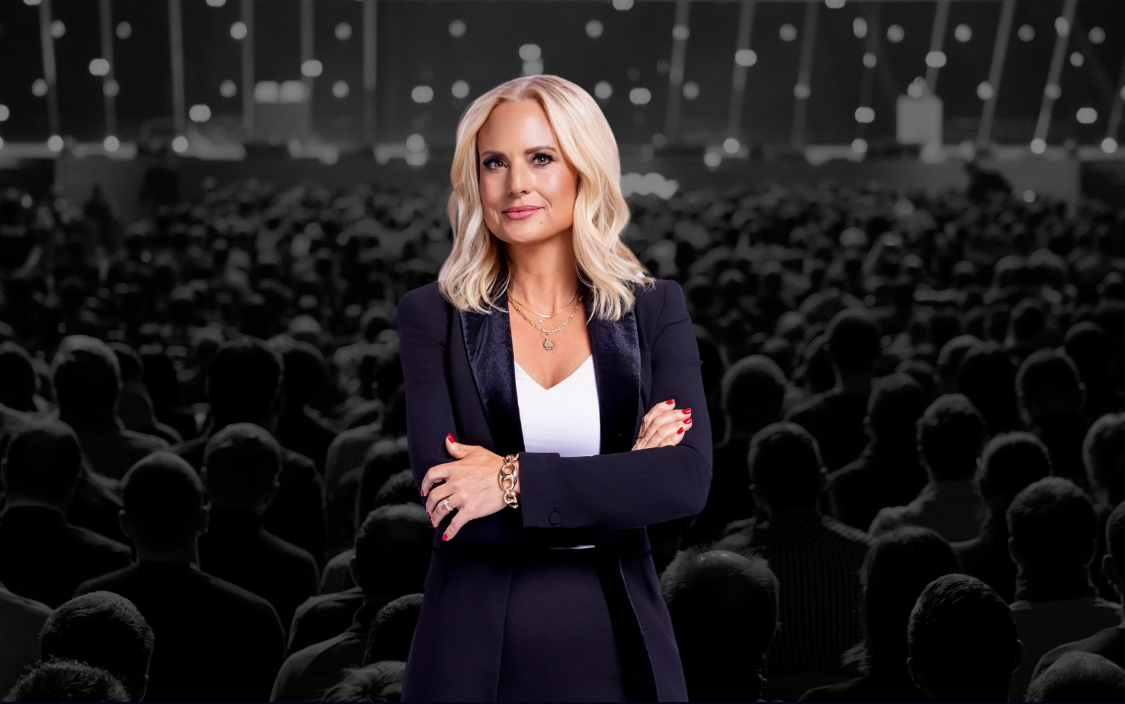
So if something happens, you have that trigger, maybe you decide to take three deep breaths and then you decide, here is what I’m going to do, because we can control our reaction to our emotional responses. You know, we’re not victims of our emotions. We can be victims. We have to be aware of our emotions because they can’t go away, but we can become curious, and then we can choose to use our prefrontal cortex to act differently.
So I think emotional intelligence is a big part of it. Become curious about why this causes me to feel that fear and anxiety, and then get curious about it. Many times, when we feel that stress or that anxiety, it actually is a sign that there’s something really important. So when you feel that, I try to work with my clients and say, when you feel those emotions, it might be a sign that you need to move forward, not run away, because it’s something. You’re feeling the nerves, right? Because it is really important.
So we’ve got to understand our feelings better. So I think emotional intelligence is a big part of it. You know, the other thing that you just made me think of, as well, is as women, as we feel these emotions, feeling those emotions of being uncomfortable, it’s normal; that’s part of bravery. Let me, if I can just use an example of Albert Bandura’s research, who is the gentleman that discovered self-efficacy, and what he found in his research to build confidence is you have to take action.
So he says, he goes, I don’t, I’m not gonna give emotional, I’m gonna give motivational talks and just try to change the mindset. I’m going to expose you to whatever makes you scared, and then in little doses. So we had this study that’s very famous. He took a bunch of people who had this anxiety around snakes, fear of snakes. And what he found in this research was what he did is he started off by showing them a photo of snakes, which made them uncomfortable. And then he showed them a video.
And then he brought in a snake in the room at the very far side of the room in an aquarium, and then he brought it closer, and then closer yet, and then brought the snake out and handled it in front of the people. Eventually, they were handling it. So in every step of that, they felt uncomfortable. It wasn’t fun.
So as we’re building our confidence, I just want your audience to know that if you’re feeling uncomfortable and a little bit nervous, that is normal, and you should be feeling that. But we get confused. We’re like, wait, I’m uncomfortable. This is scary. I should run the other way.
No, like in that case, now no one wants to, I don’t wanna handle snakes, but think of, instead of snakes, it is speaking up in a meeting or raising your hand for a promotion or setting a goal you’ve always wanted, right? We just need to take little baby steps. So think of it as, you don’t have to like climbing a mountain tomorrow, but you just need to take a baby step every day, and you’ll get more and more comfortable.
The belief that we need to overcome is that if you are doing something for the first time, it will not be perfect… failure is the path to the greatest success.
~ Jill Schulman
You know, I also, through working with my clients and through working on my own journey and kind of just unpacking all of the stuff, you know, I’ve learned that fear also kind of shows up when you really care a lot about the thing—whatever that thing is. What are your comments around that?
Yes, fear is a message. Sometimes, I have to acknowledge this, sometimes fear is something to listen to. But most of the time, it’s not. I mean, let’s think back to our caveman days, right? Fear, you know, of the edge of a cliff, that’s a good fear to stay away from.
Or if we’re traveling to a strange city and we’re women and we have to go from the restaurant where we had our business dinner back to our hotel, and it’s a dangerous part of town, like if the—that’s a good fear to listen to. Let’s listen to that.
The most common fear that we experience is the one that you’re talking about. It’s a sign, it’s a signpost that something’s important and we should move toward it. So this is us reinterpreting fear. When we feel scared, this is something important. Let me look into it, and I need to take a step toward it instead of away from it.
Absolutely. You know, I want to add another layer to this, Jill. How might a woman’s understanding of bravery evolve beyond traditional or cultural expectations? Because I deal with a lot of that. Talk to me about that. Because now, and this could be a different layer that’s added on, but like, the more layers you add on, the more the fear becomes kind of this central voice echoing in your soul, right? Talk to me about your thoughts there.
As I think about the layers of bravery, most people don’t really understand bravery, which is why I did my research on it, which is, I’m trying to educate people on it. When people understand bravery and they understand that it’s a skill that is learnable and practicable, and how essential it is for our success, our happiness, and wellbeing, then I’m getting organizations to teach these skills of bravery in their organizations.
Now, even when I have men in my audience, the ones that seem outwardly the bravest, “I’m brave, I’ve never been scared of anything”, after they go through my program, they realize that there are three facets. There are three parts of bravery. One is the beliefs, the cognitive side of bravery: Do I believe I can do hard things? Do I have a growth mindset? Do I have a stress-enhancing mindset? I have all this stuff that I do on the cognitive side.
The second part is, do I act in the presence of fear? But not just physical fear, because a lot of people just think, “Oh, I’ve jumped out of an airplane before, I’m brave.” But what have you done at work to stretch yourself? Are you brave enough to suck at something? To be bad at something, to try something new out of your comfort zone?
And then the third facet, this is where I get all the macho men, are you brave to be vulnerable? To admit mistakes, to share what you don’t know, to ask for help? Because all facets, these are all the things that can really help us thrive.
So I think society’s understanding of bravery is so small. People think it’s just running into battle and that it’s something you’re born with. But bravery is for everybody, and it is a learnable, practicable skill. It’s like going into the gym. If someone isn’t strong, we don’t just say, “Oh, you’re gonna be weak forever.” We would say, “You can work out your body to become stronger.”
So when it comes to bravery, it’s exactly like a muscle. You do, like, if you want to become really strong in the gym and bench 100 pounds, you’d go in there and bench what you can, and it’ll hurt a little, and you’ll be a little sore. And then you’re going to go again, and you’re going to add a couple more pounds. Over time, you build strength.
So bravery is the same way. You’re not going to do it in a moment. It doesn’t happen just in a minute. It’s something you build a capacity for over time, and it transforms your life.
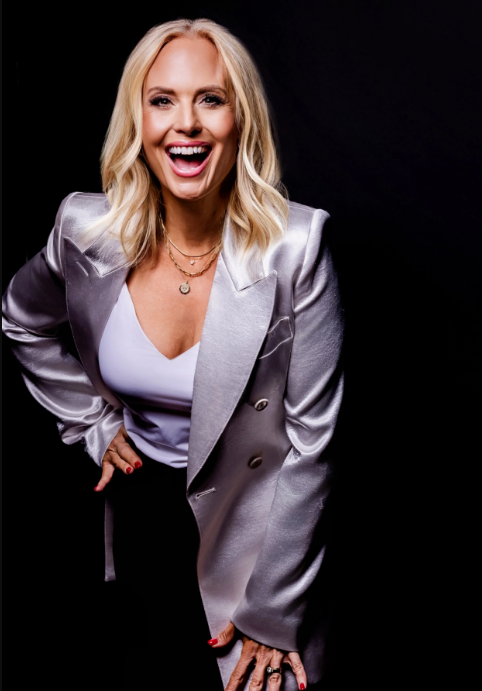
You know, it’s really interesting because you talked a little bit here about the three steps of your program. What more can we share with people about this program? Like, who is it for? Is it something that they need to do in person with you? Can it be done virtually online? How do they sign up? Let’s go there.
So, for right now, this may be bad news to your audience. I am only bringing it into large organizations because I haven’t built everything out yet. The reason why I wrote the book is I wanted to make it accessible for anyone. So the best thing I can do right now is I have the book called The Bravery Effect. I actually wrote it as a parable. I love parables because they just make the message stick, and it’s enjoyable to read.
So, I’ve got the book, and then I’m going into organizations because I have a belief that if I can convince large organizations that this is an important skill, I’ll be able to scale faster. I’ve gotten a lot of requests from so many of my followers and listeners that they want something to go to, so I will let you know at some point so you can let your community know what to do, like an online on-demand training, but it’s not available yet.
Um, but it is a skill that we all need. So I’m working as fast as I can to create the resources. But for now, go onto my website. I have a free bravery assessment right now, so anyone can go on my website, because I’m trying to give as many things for free as I can. I am so passionate about getting this to the widest audience. You can take a bravery assessment, and I will give you a free action guide.
In my newsletter, I always give one evidence-based tip and then one thing people can do. So I am trying to get that out there, and then if people follow me, every day I’ve got a little reminder because, you know, what we bathe ourselves in, Raj, right, it makes an impact. So I always try to surround myself with: Who do I follow? What messages do I want coming in? So I give that little message to encourage people to put courage in every day, just a little short one. Another way, too, is, you know, I follow all the people that inspire me, and when I see their feed, it makes my day better because I see all the other encouraging stuff.
I love that. So, let’s talk a little bit about the book, The Science of Bravery. Guys, you can get it where?
It’s anywhere books are sold. I mean, Amazon, Barnes & Noble, et cetera, so they can buy it there. And it’s written as a parable. It takes about two hours to read. And then, in the back, of course, I’ve got a bunch of free resources because I really care that people can take what they learn and apply it to their lives so they become more confident and bolder to go after their dreams.
So, let’s talk a little bit about who the book is for and what’s the big idea of the book. Like, what will they get out of it? Is it a transformation? Is it information? Is it skill? Let’s share that with everyone.
It’s anywhere books are sold. I mean, Amazon, Barnes & Noble, et cetera, so they can buy it there. And it’s written as a parable. It takes about two hours to read. And then, in the back, of course, I’ve got a bunch of free resources because I really care that people can take what they learn and apply it to their lives so they become more confident and bolder to go after their dreams.
Bravery is the same way as a muscle. You’re not going to do it in a moment. It doesn’t happen just in a minute. It’s something you build a capacity for over time, and it transforms your life.
~ Jill Schulman
So, let’s talk a little bit about who the book is for and what’s the big idea of the book. Like, what will they get out of it? Is it a transformation? Is it information? Is it skill? Let’s share that with everyone.
It’s written as a story of a man’s transformation being guided by a mentor who is a woman. People are like, “You have the main character as a man?” I’m like, yes, but the wise person that teaches bravery is a woman. Of course. But I wrote it specifically as someone who isn’t living a miserable life. It’s someone who’s living a good life, but their life is not fulfilling.
They’re really busy, and they’re stressed because of the volume of work. They haven’t really had enough confidence in themselves to really go after what they want. So they’re living in a kind of rat race, the rut. Because I think a lot of the people that I serve, they’re smart, they’re talented, they are high performers, but they have a level of potential they haven’t tapped into. They’re living too small.
So this story is not about someone who’s, like, you know, a coward in the corner coming out to be a hero. It’s like a regular everyday person, like you or me, and Alex goes through a transformation. And in this parable, the wise mentor, I don’t want to give away the whole story, but she has something called the Brave Sciences Institute, and she teaches the lessons. So, people will get a lot out of it.
They’ll learn the lessons backed by science that you can apply to your life. And in the back, this is where I nerd out on all the evidence. I love it. Because some people want all the science, no, I want it. I need it. I want it. But then, other people, especially when I do keynotes in large companies, they’re like, “Jill, everyone believes you, just tell them what to do.” So it depends on the audience.
So, the book is: read the story, there’ll be little hints of the evidence, and then if you want all the science in the back, it’s all there. So it will open your mind to define what bravery is, why it’s essential for all of us, and you’ll walk away with the practical tools that you can immediately apply.
I love it. Guys, you’ve got to go out there and get this book. Jill, you haven’t shared this yet, what is your website? What are your socials? How can people sign up for the newsletter or the good stuff?
My website is a great place just to start: jillshulman.com. So if you’re listening, my last name is spelled—Jill is pretty easy, J-I-L-L, but Shulman is S-C-H-U-L-M-A-N—and that’s where you can sign up for my newsletter and click on all the things to follow me. But if you just type in my name, Jill Shulman, on Instagram, I guess I was the first Jill Shulman there, so it’s easy. And then for Facebook, I think I’m JillShulman5, and I’m also on LinkedIn.
So those are all the social media things that I’m on. Yeah, and I want to develop a community. Please, if you see my post, let me know if it’s resonating. I have a lot of free resources I give out. I ask for inspirational stories. So I love to interact with the audience to really hear when they try one of the strategies I suggest, one of the evidence-based practices. I want them to go try it and then come back and let me know. I would love everyone’s feedback on which things are working for you in your life.
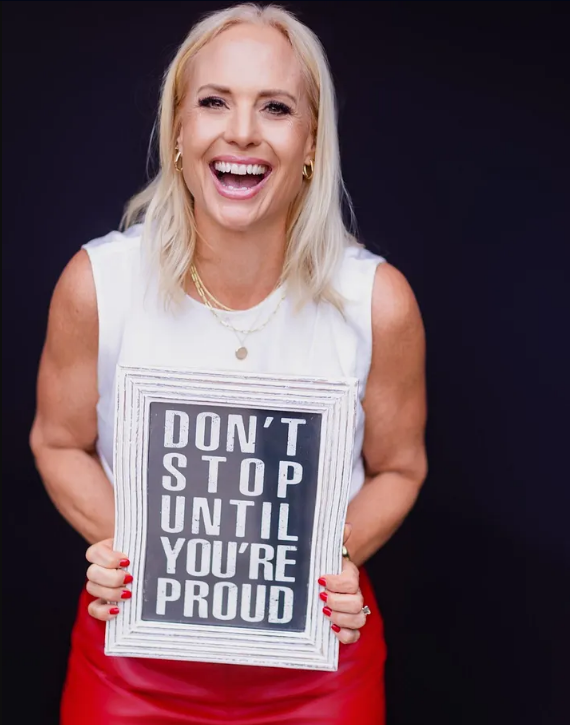
Oh my gosh, absolutely. Like, you heard it right here, guys, just make sure that you do that. It’s the interactive piece, it’s the sharing, and that is what really helps experts like Jill understand if what they’re doing is resonating, and maybe there are areas that they can tap into that they hadn’t thought of and dive deeper.
Yes, exactly. And it’s one of the things I teach in the Brave Relationships portion: be brave enough to ask for feedback. If you want to have the most brilliant career and grow, then we need to be brave enough to ask for feedback. That’s why I ask my audience: What is working the best? What might be confusing? And I ask that because I want to know how I can be better.
So, it’s one of the skills that I teach, but it’s the skill that I live. And I learn from everyone. I learn what’s working best, or, “Jill, that was a little bit confusing,” because sometimes I get a little too geeky, right? And then I try to make it simpler. So I love the interaction and the feedback because it makes me better.
Absolutely. So, let’s ask you a few more questions, Jill, around women. What does it mean for a woman to take up space unapologetically, and why does that require bravery? Your experience, personally, maybe family, maybe people you’ve worked with.
I think as women, we need to really believe in the value we bring in any situation—family or the workplace. And when you believe in the value that you can bring, then you’re naturally going to bring your presence into that space, which is why I always work on the cognitive side. We’ve got to reframe our beliefs. We’ve got to know that my voice is needed.
When I speak up, I’m going to bring value. So if you believe that you are important, then your actions will follow. And then there are, of course, techniques that we can work on to take up space. But I want you to go into that room with your shoulders back. I want you to have your plan on what you want to share and go in there and do that.
Just like the Bandura example, right? Don’t wait until you feel ready. Go in there and have your presence, share your thoughts, and take that information back in. Maybe ask a couple of male mentors who are willing to mentor women and say, How did that go? What did I do well? What can I do better? Ask for that feedback.
I love that. Because we always ask, you know, “Oh my God, you said something so important here.” We always ask those people that we know, are positive or are like us, right? Like, you know, a woman’s gonna ask a woman, right? A professional is going to ask a professional, a mom is going to ask her mom.
Well, she’s gonna get you, he’s gonna get you, but when you are speaking to the person that you fear sitting in a room with, a.k.a. your boss, he’s male, he’s very, you know, A-type male, alpha male, have that conversation and see, honestly, what is he saying back to you that you can learn? What a great idea to be mentored by the person that you fear.
Yeah, and be brave enough to ask for help. You know, sometimes we surround ourselves—another thing in the book about a brave tribe is that sometimes we surround ourselves with people that are gonna say, “You’re perfect the way you are. Everything is great.” I want you to surround yourself with people who are gonna give you the truth and challenge you to be your best.
So, I always talk about the difference between being nice and being kind. Sometimes we’re just nice because we wanna say, “Oh, everything was perfect. You did the perfect job.” If I really care about your development, I’m going to give you feedback that’s gonna help you grow. I’m gonna tell you the things that you did well, and I’m gonna give you at least one suggestion on what you can do better.
I think as women, we need to really believe in the value we bring in any situation—family or the workplace. And when you believe in the value that you can bring, then you’re naturally going to bring your presence into that space.
~ Jill Schulman
So, I’m giving you a little hint, and I learned this from Adam Grant from Penn. He’s an organizational psychologist from the Wharton School of Business. What he taught me in his book and in all of his podcasts is that instead of just saying, “Hey, can you give me feedback?”, sometimes people are afraid, they’re not brave enough to give you honest feedback.
A better way to ask for the feedback that’ll get you the feedback you’re seeking is to ask it this way: “Can you give me one suggestion on something I can do better to take my performance up to the next level?” When you ask it that way, people feel comfortable saying, “Oh, you want to get even better and you want one suggestion? Oh, I’ll give you that.”
But if you ask someone like, “Raj, what did I do wrong? Can you give me constructive feedback on what I did wrong?” people sometimes hesitate to give us the truth. So, when you’re being brave to ask for suggestions, frame it that way: “I have goals to get better and better. Can you give one suggestion on something I can do differently or better in order to get to that next level?” And then listen to the feedback.
It might be hard to hear, but we’ve got to be brave enough to take that in. Maybe we are not projecting our voice. Maybe we’re rambling. That was my challenge. Yes. My first leader—the first leader I told you about, I went into pharma, my very first leader, who was a fellow Marine. I went to my very first corporate meeting and I was excited. Every time they’d ask a question, I would raise my hand. I would raise my hand.
And sometimes we can go overboard. So, he gave me this great feedback. He pulled me aside because he cares about me. He was kind because he gave the feedback and said, “Jill, you have so much potential and so much value. I know you’re trying to make the very best first impression, but I want to give you some feedback so that when you speak up, your voice has more value. Would you be open to hearing it?”
And, of course, I’m going, “Uh-oh.” Was I uncomfortable? Yes. But he told me, “When you volunteer an idea or you speak up every single time, the value of your comments goes down because you’re always talking.” It’s like, “I appreciate the enthusiasm.” And he gave me this hint. He goes, “Throughout the day, I want you to choose three times that you’re gonna raise your hand because that’s when you’re gonna have the most value that you can bring to the room.”
He goes, “When you do that, when you speak, people are gonna listen.” Like, there’s an example, right? How beautiful that he cared enough. But I think sometimes we become defensive when we get feedback, right? So, we should ask for feedback, and when we receive it, take it, because it’s there to help us grow.
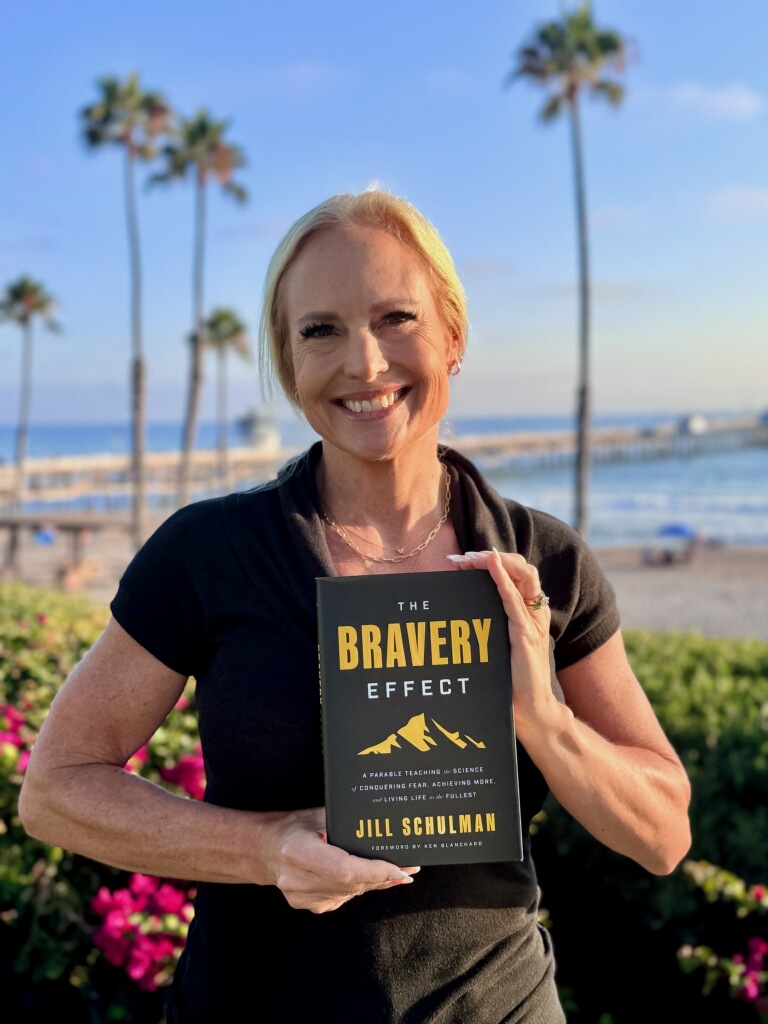
Absolutely. So, let’s talk a little bit more about that. What internal beliefs do women often have to unlearn in order to make space? And, you know, just kind of have the room to be able to bring in the things that allow them to be their authentic self.
It’s all those self-limiting beliefs. And when I talk about practical things—because I love talking about tactical things you can do—this is about that voice inside of our heads, right? I’m sure you’ve talked about this. We all have a voice inside our head; we talk to ourselves, right? Some of us have an entire committee in our heads.
And sometimes that voice says, “You’re not enough. You’re gonna screw this up. You are a loser.” Like, there are these horrible, horrible things we sometimes say to ourselves. The strategy in order to overcome that—you can overcome this—is instead of listening to this negative voice that’s on your shoulder, we need to turn the volume down on that negative voice and start telling ourselves positive things.
So turn up the voice on the positive things we tell ourselves. Instead of passively just listening to the self-talk, you actually can shift into self-talk. It’s not easy. And, you know, some strategies I learned—the first one I learned when I was first studying positive psychology at Penn—this woman, Karen Ryvik, she was our professor. She’s from New York, she’s sassy, and she dropped two F bombs in the first five minutes, and I was like, “Woo!” But she just tells it straight.
She goes, “If you heard someone talking like that to your loved one, your daughter, your best friend, what would you say to that person?” And she goes, “Write it down, everyone, write it down.” If those same comments that you say to yourself—that you heard someone saying to your loved one—of course, we’re all writing down, “Do not listen to her, that is not the truth.”
You made a mistake only—you can overwrite it. Like, we write down whatever that is. And she says, “I want you to start taking whatever you wrote down and saying that to yourself.” Because she’s not fluffy; she’s like, “This is not fluff.” She goes, “You need to tell yourself the truth. And the truth is, you do have the skill and ability. You can do it. Maybe you made a little mistake.” So I loved how she framed that.
So if you just imagine that external person telling a loved one, intervene. This is where I want you to kind of argue with yourself, right? Go in there and challenge that voice, talk to yourself, and bring truth. We don’t want to be Pollyanna, but it’s really bringing truth to light. So that is one of the strategies I’m a huge fan of.
Ethan Cross, who wrote a book called Chatter—absolutely fantastic. I mean, we all have self-limiting beliefs. I mean, Jill, the United States Marine who is supposed to be the expert in bravery, I had this a couple of years ago. I had my company, very successful, but I just had this desire: I was like, “I wanna write a book someday.” I thought, “No, no one will ever read it. I’m not an author. I suck at writing. I could never do this.” I had to put everything into practice, right? I had to believe, “No, I’m not good at writing yet. I can do this. It’s going to be hard work, but I can do it.”
And then I had to write some every day. When I ran into challenges, I went to my brave tribe. Ken Blanchard is one of my mentors who wrote The One Minute Manager. I went to the people who have written books. So I was brave enough to join my brave tribes. When you want to do something hard, you have to find three to five people who have done the hard thing you’ve done. And then they make you feel braver, because you go to them!
And then they say, “Oh, when I wrote my first book, I felt the same way.” “Oh, I was worse than you.” And you’re like, “Really? I feel so much better about myself.” You struggle. They will be the ones to pick you up when you fall. So, you guys, it happens to me too. We should all be trying to be scared because you should be setting that next goal.
So, I think I went off on a tangent, but I don’t remember the question, so I just went with it.
When you want to do something hard, you have to find three to five people who have done the hard thing you’ve done. And then they make you feel braver, because you go to them.
~ Jill Schulman
But I kind of feel like you answered it because you answered it with an example, which is the best way for a person to understand how to contextualize something that seems like an intelligent academic thought. So I love that you did that.
I want to ask you something a little bit different, Jill. And maybe this is where some of the strengths really lie with women, strengths they could perhaps tap into more in other elements of our life. So let me ask you this: what kinds of risks do women take in areas like love and motherhood that require deep personal courage, which is different from men in the same roles?
Because when you think traditionally, just to preface it a bit, when you think traditionally of the workforce, you think, okay, men determined that space, and then women had to come in to create their space in that. Women, I mean, this could be argued, but let’s just say that women created the space of motherhood, love, nurturing, which is different from the way men look at those roles.
So men are coming into maybe that space the way women come into the workforce space. There’s a strength and bravery in those roles that we don’t often talk about, and they are transferable into other aspects of our lives.
Yeah, yeah. I think I see where you’re going. And I’ll say one thing: we need to give a little credit, there are some men who are incredibly nurturing, right? That’s true. There are a lot of examples. And I’m generalizing. Yeah, we’re generalizing. But what I can say is, I think sometimes we make this mistake of thinking we can be one of two things. This comes from Dr. David Yeager at the University of Texas, Austin.
He talks about how many times we think, like, are we going to hold people accountable and be hard on people, drive results, and be a jerk? Or as a leader, are we going to be nurturing, kind, nice, and weak? So those are the traditional, like, are we going to be more masculine in our energy or feminine in our energy? And we sometimes think, like, it’s a conundrum. We’ve got to choose this, or we’ve got to choose that. And what he shares in his research: you don’t have to choose. You can be both.
And so we’ve got this superpower of nurturing. What he says is, you want to set really high expectations and standards. And that’s a loving thing to do, to say, I believe in your potential. I believe you can accomplish these challenging goals. So, we want to start there. We never want to lower standards to be nurturing. We want to keep the standards there. But then what we can do is support and nurture people to accomplish that challenging goal.
So we have to look at the strengths of both. We want to set challenging goals because that’s what’s going to make the company successful and the person’s career successful. So we don’t want to make it easier. And sometimes as parents, we might make this mistake. I started out as a mom. I can tell you some mistakes I’ve made. I was not emotionally intelligent. I was too hard on my girls when they were young, and I didn’t create that nurturing environment.
Maybe I’m unlike a lot of moms naturally, but I was too hard on them. And I learned about emotional intelligence, and it changed my life. And I was like, whoa, huh, I guess I’m the problem, right? So I learned how to be emotionally intelligent, but I made all the mistakes in the world. Sometimes I was too hard, and then my pendulum swung way too far the other way because I thought, okay, I want to make them happy, I want to create harmony.
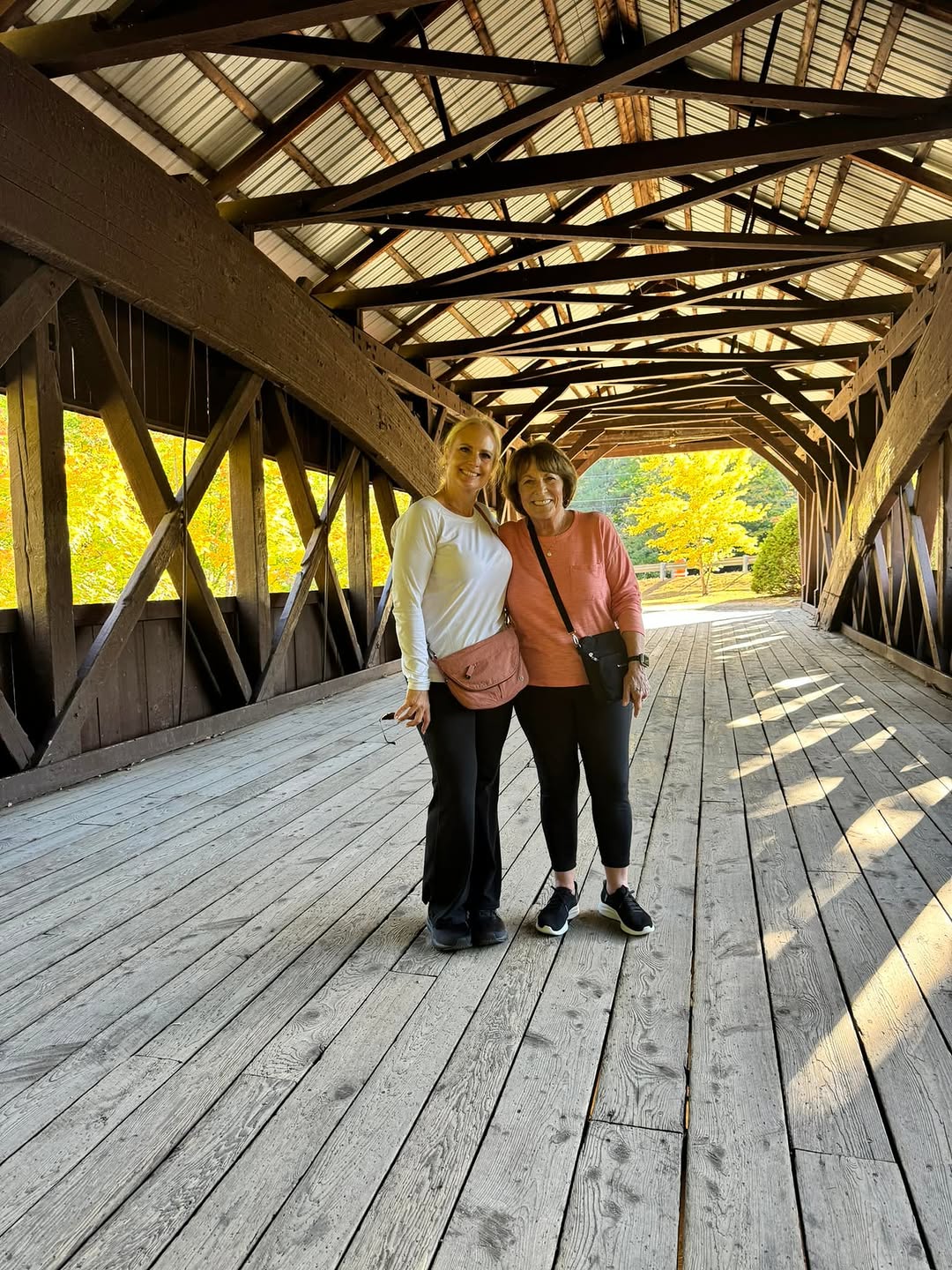
I had this one instance where one of my daughters was really struggling going to school because she had a huge fear of speaking in front of her class. I mean, don’t most people have a fear of speaking in front? Yes. I wanted to help her and I didn’t want to always be that hard Marine who was too strict. So we agreed to go to the school and intervene. The school said, no, everyone has to do this.
Then we went to a psychologist, and we got the psychologist to write a note saying it was creating anxiety and they had to stop, right? And the school was forced to—they had to. I have to tell you, I’m not proud of that moment because I was doing what David Yeager says: sometimes you’re like this. I was like, I have to be just really hard, or I have to be nurturing.
Now what I’ve learned is the best way I should have been, this could be in the workplace or as a parent—is, I should have known, this is so hard: to speak in front of your class. I should have taken away some of the fear. I should have said, let me help you prepare. It’s going to be scary. It’s not going to be easy. She’s probably not going to be the best speaker in the class, but I should have provided nurturing support around her ability to accomplish the goal.
Because what I didn’t intentionally do, and now I look back, I’m like, ah, how did I make this mistake? When you take away the challenge, you basically tell them, I don’t believe in you. Actually, I can’t do it, and that isn’t good parenting.
So I think we can, men need to learn to be servant leaders: set high, challenging goals, but then do whatever they can to support and nurture their people to achieve them. As women, if we are more naturally nurturing, we can be viewed as soft if we don’t turn that nurturing into support for the highest performance. So, right, let’s bring them together.
Growth and comfort do not coexist. Bravery means embracing the hard parts, even when it’s uncomfortable, because on the other side of that fear is fulfillment, impact, and strength.
~ Jill Schulman
Oh my God, that’s the perfect thing right there, what you just said. So, let’s talk about that. Oh my God, we are getting ready to close off and I have like a thousand questions. You know that I’ve got to bring you back on, Jill, but let’s just kind of wind this through back to the core purpose here.
Before we do that, I want to ask you this: based on the story you just shared, what legacy of bravery can a woman create for future generations of girls and women, so the cycle doesn’t continue to repeat itself, knowing that there are systemic changes that also need to be considered outside of this?
You know, it starts one person at a time. So as you say that, like, don’t wait until everyone in society is doing it and then you do it. We need women to stand up and be the example of bravery so that they can be that good example and lead their best life.
I have this image in my mind—imagine you’re looking at a city and all the lights are turned off at night. And then in the morning, you start seeing them turn on. There’s always going to be some lights that turn on first, right? So don’t wait until all the lights are on. If no one around you is doing it, be that first light that goes on. Eventually, everyone starts doing it.
I just imagine this because I’ve seen some time-lapse videos where a couple of lights go on, then a few more, and then more and more, and then there’s a wave, and eventually they all go on. So we can’t wait. Be that example for yourself. First of all, do this because it will elevate your own happiness and wellbeing. When you look back at your life, it is with a sense of pride and not regret.
I want you to do it for yourself, but I also want you to do this to be the example for all women and help them be brave. We need to support each other. I’m here to help women. I want them to become more confident and braver. And I want them to not only do it for themselves but also teach it to somebody else.
So if you read my book, I want you to pass the book along to another woman and say, “Read this book,” and support them in that journey. That is the legacy. I want to tell the truth. I want to be the truth-teller and help people understand what bravery is and that anyone can build it. When you do, it changes your life, and we need to spread it and pass it along.
Absolutely. Jill, what a pleasure it’s been chatting with you. You’ve taken my mind in all kinds of different directions, and I feel like there’s some work I need to do in this area myself, just to better serve myself, my environment, my clients. So thank you so much for opening that up for me.
Any final words you’d like to leave everyone with, especially those sitting on the fence between fear and bravery?
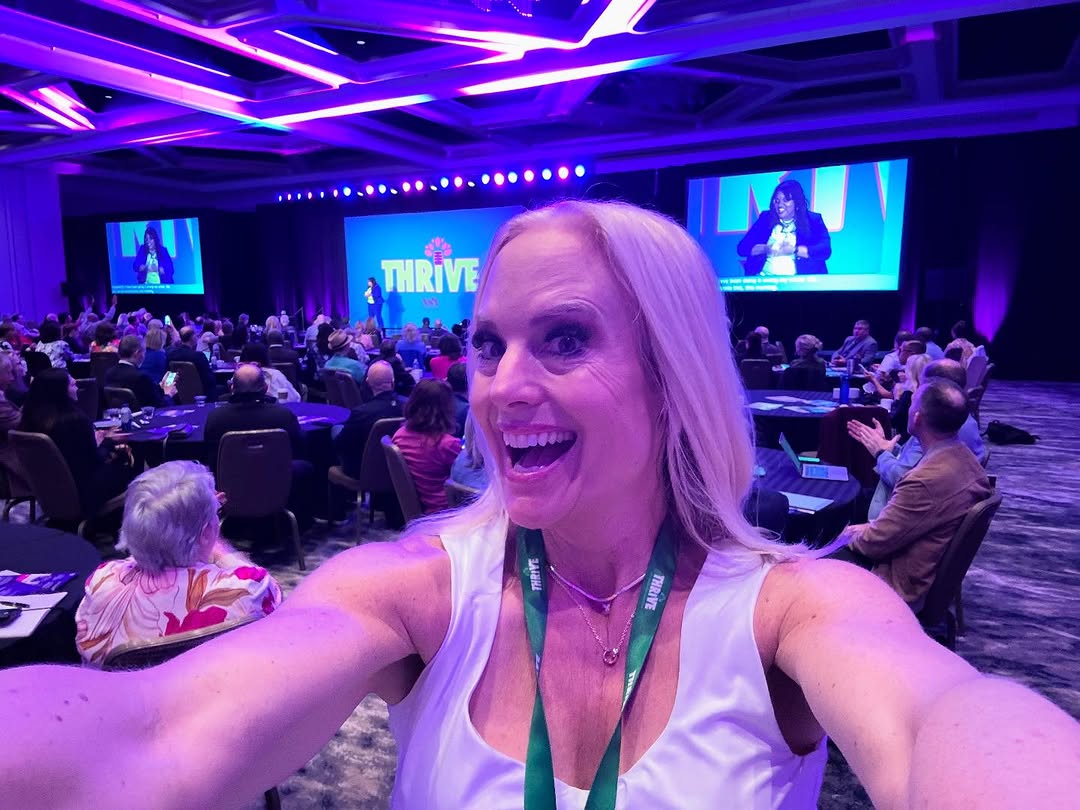
You know, there’s a, I have all these stickers that I made, so I just want to leave like a little motto that you’ve probably heard a lot. So growth and comfort do not coexist. So I love that one, but I want to lead your audience with a little term that we say in the Marine Corps. It’s a very masculine term, but I want to share it with you so you guys can understand it. And that is to be brave, sometimes it’s uncomfortable.
So in the Marine Corps and the Navy SEALs, we have this phrase and it says, embrace the suck. It’s kind of crazy, right? Embrace the suck, and when I was a Marine, I’m like, this is such a macho word, but I want us to think about it. I want you to think about it, what does embrace mean? When you embrace a child, when you embrace another person, you’re putting your arms around it, you’re bringing it in, you’re loving it.
Many times when you’re the woman and you’re the first one to stand up to be brave, it’s gonna be hard. But when you face the fear and get through it, you’re gonna be making an impact. So sometimes you’re going to go through hard times. It will sometimes, it will suck. It’ll be unpleasant in moments, but that’s what bravery is. It’s scary, it might be unpleasant in short periods of time, but that short term pain or discomfort is what’s needed to feel that fulfillment on the other side.
So I share that little motto that we say in the Marine Corps. So if you ever hear someone say that, like let’s think of the feminine version of that. Like we’re gonna put our arms around whatever the challenges are because we can overcome it. And when we bring it in and say like, overcoming this and embracing this is what will make me stronger, then we’re going to be unstoppable and undeniable. And undeniable, and then we’re going to be heard and we’re gonna take up space if we do that.
Absolutely. Well, you are definitely undeniable, Jill. Thank you so much for this master class. I feel like you’ve opened up for all of us, because from my perspective, you are all inspiring. And I thank you so much for coming on the show.
And can you come back? Can we talk deeper about, you know, something else that you talk about around this topic? I mean, almost like maybe we could workshop a little bit with people. I’d love that.
Yeah, let’s do it. Because I want people to be able to actually take this back and apply it. So we can go deep into one of these areas and workshop it and give. Yeah, I would love that. I like the brave relationships piece. It is so powerful. There’s a lot of things that we can do internally to be brave. Yes, but if we can create an environment that helps us be braver. So it’s not so hard when we do that. So yeah, let us talk again. I would love it.
Many times, when you’re the first to stand up and be brave, it’s going to be hard. It might be scary, it might be unpleasant, but that short-term discomfort is what’s needed to feel fulfillment and make an impact on the other side.
~ Jill Schulman
Thank you so much, Jill. You’re amazing. Everyone, please follow Jill and go grab her book, you know it’s important. Every single person should read it. I truly feel it’s one of those must-have books that helps you understand you’re not alone in all the negative self-talk and challenges you face, and that there are solutions, no matter what your starting point is.
Thank you again, Jill, and I can’t wait to see you next time. All right!
Thanks for having me.
And from my perspective, folks, I will see everyone next time with another insightful episode, just like this one. Transform Your Confidence, the podcast folks, you can go hangout with us on YouTube at The Open Chest Confidence Academy. You can also go to The OpenChestConfidenceAcademy.com to sign up for our freebies, our free newsletter. Be a part of our community.
And please stay connected with us on our socials at @The Open Chest Confidence Academy and theopenchestconfidenceacademy.com website where you can find out different ways that you can work with me and our team. See you next time.
And as always, I’ll see you next time. Take care of yourself.



